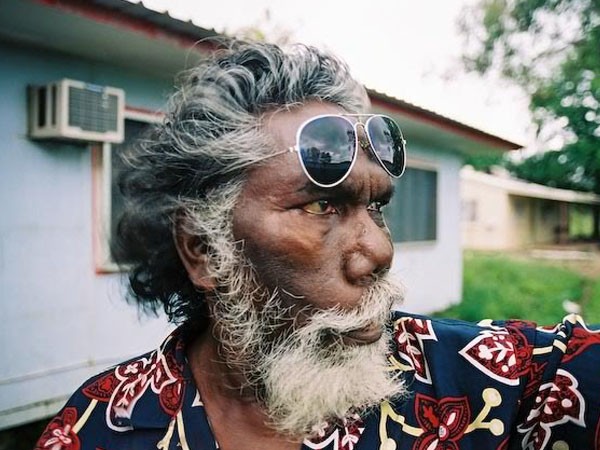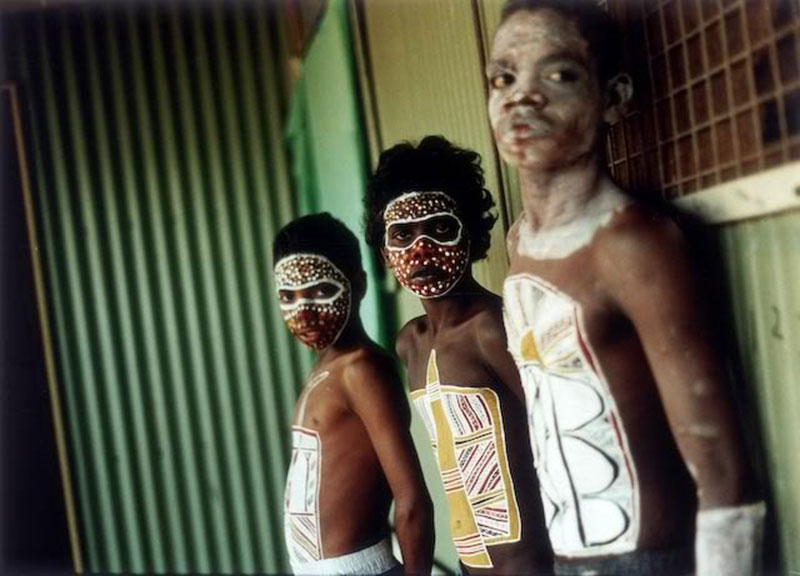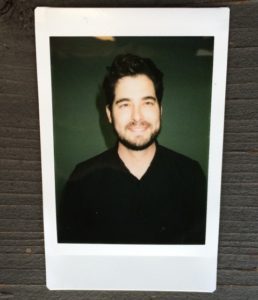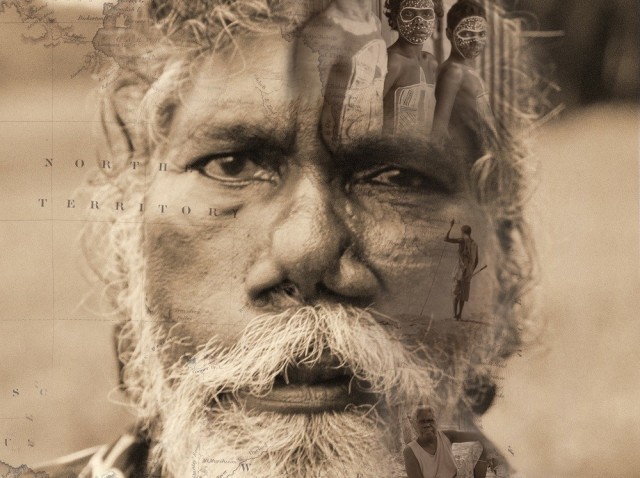Djalu Gurruwiwi is one of the most celebrated aboriginal didgeridoo (yirdaki) players in the world and deservedly so. Djalu’s knowledge of the instrument, and his relationship to Galpu songs is likely unmatched. Every time we went out to harvest didgeridoos from termite-hollowed trees in the forest, I observed Djalu’s remarkable skills as a craftsman. Djalu can spot viable instruments amongst thousands of stringybark eucalyptus. He can just walk amongst the trees, look and listen for clues, then chop down a perfect instrument every time.

Amongst the global didgeridoo community, Djalu is a remarkable figure and his personal history is somewhat well known. Instead of retreading facts about Djalu’s incredible life, I want to share with you what I directly experienced with him and the positive impact this had on my life.
My name is Joshua Bell and I spent over a decade crafting a documentary about Djalu, the Gurruwiwi family, traditional aboriginal didgeridoo, and the struggles of Aboriginal clans across Arnhem Land. We eventually titled and released this film as In Between Songs (inbetweensongs.com) and it stands as a testament to the aboriginal tradition and the core message it carries.
In Between Songs – Official Trailer from Digital Gypsy on Vimeo.
When Djalu was a child, he and his family lived and survived on the island of Rrakala, off the coast of Northeast Arnhemland for long stretches of time. To put it in perspective, the clan travelled across the chain of Wessel Islands back and forth from the Nhulunbuy area by dugout canoe with carved wooden paddles.
Galpu Tribe Map
In 2006, when my film crew and I joined the Gurruwiwi family on a trip to the island, it was a grueling eight-hour journey by dual-engine motorboat. Literally within moments of arriving on Rrakala, Djalu and the boys had already caught several stingrays for dinner with a homemade spear. Imagine living on a desolate island for months at a time with no pre-prepared food, little to no protective clothing and only your knowledge of the land to sustain you. It’s pretty incredible and speaks to Djalu’s lifelong knowledge of the land.
On that same trip, Djalu also shared a story from his youth, probably from around 1942 or so. While on the beach at Rrakala, Djalu witnessed a Japanese fighter plane being shot down by the Australian Army directly overhead. Neither he nor his family had ever seen a plane, much less an explosion of that kind. Djalu said, that he “cheered when the plane exploded, as he had never seen anything like it.” I believe that most Yolngu at this time had no concept of this kind of modern war. It was all new to them. As Djalu described the strange wonderment of seeing a plane for the first time, I pictured Djalu as a young boy, experiencing the spectacle. Moreover, as the story goes, the family helped rescue the pilot, nursed him back to health, and returned him back to a Japanese search party. Again, the lack of “otherness” the family demonstrated is remarkable to me. Someone was in need, so they helped them. We can all learn something from this.

As I also understand Djalu’s story, as a young man, Djalu grew to be an enforcer of sorts within the community and amongst the Galpu people. When traditional law was to be carried out, and punishment exacted, Djalu was one of the guys to do it. This could mean a spear to the leg, or a club to the head, or something else unpleasant. There was a story I heard once of Djalu picking someone up and throwing the man so hard into the ground, that he literally drove the man’s head into the earth. True or not, for a time, Djalu was dangerous, he was feared, and he was respected. When I am with Djalu I can feel his power and quiet ferocity.
As Djalu grew older, and as alcohol was introduced to Arnhem Land, he found himself drinking and getting into trouble. For uncertain reasons Djalu found himself inside a jail cell. One night, while in jail, Djalu was visited by a spirit and in his words, “he found Jesus.” At the same time, Djalu began to turn his life around, slowly growing into the incredible man that he is today. He gave up drinking, he began dedicating his life to didgeridoo (yirdaki or mandapul) and he opened his heart to others in new ways.
This was the Djalu that I met, spent time with, and got to know. Even though I spent close to six months total with him, his wife, his sister, and different family members that floated in and out during our time spent in Nhulunbuy, I feel like I know only a tiny bit of Djalu’s story.
***You can buy didgeridoos from Djalu and his family and find out more about the Yolngu tradtion at www.djalu.com.
Djalu, like many elders in the community whose names have not been elevated to the same degree, possesses a profound amount of knowledge and wisdom. Djalu is a master musician, a tribal lawman, a scholar, an environmentalist, a philosopher, an artist, a poet, a father, a son, a brother, a leader, a warrior . . . the list goes on. His English may be poor, and he’s not an academic in the conventional sense, but he’s a certified genius.
In my experience, there are very few people who embody such a rich personal history, who are so completely generous in spirit, and whose voice and life carry such immense weight and power. Djalu’s message and his songs have traveled around the world and back again. His core teaching is love and we all can feel it. He never said this to me directly, but in his most modest way, I believe this makes him proud. []
Author Bio:

As an Emmy Award® nominated filmmaker and creative, Joshua Bell wears many hats. Born and raised in Minneapolis, Josh was aware of how art affects consciousness even from a young age.
For the last two decades, Joshua’s films have been lauded worldwide by festival juries and critics alike. His first feature documentary, Elements of Style, a vivid portrait of underground hip-hop luminaries Atmosphere, Eyedea and Abilities, and Brother Ali was groundbreaking. His short film, A .45 at 50th, a candid look at Hollywood heavyweight, James Cromwell’s involvement with the Black Panther Party garnered significant acclaim internationally, with additional nods from The New York Times, and The Huffington Post. His feature film, In Between Songs, is a stirring portrait of an Australian Aboriginal family fighting for their clans survival in the face of tremendous hardships.
As a film director, producer and writer, Joshua strives to create soulful and substantive content. Currently he is Head of Development at UX Entertainment.
Visit Joshua on the web at http://www.joshbelldirects.com













